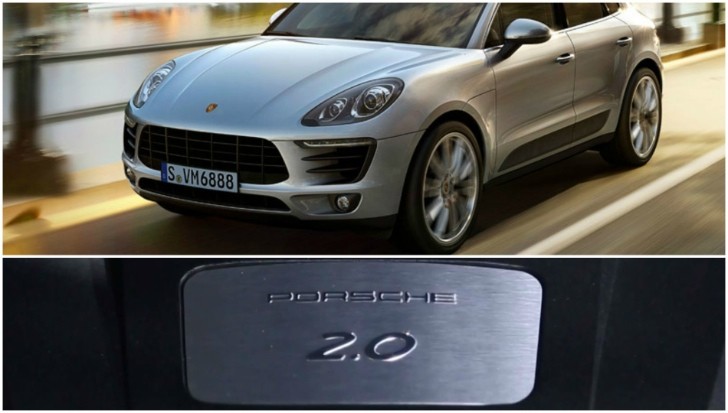Porsche's Macan SUV already enjoyed its official debut in China earlier this year. However, a second even recently took place to welcome the arrival of a new Macan 2.0 Turbo, aimed at young customers of financial means.
That "2.0 Turbo" badge under the bonnet is not attached to a boxer four-cylinder engine, but to an Audi inline-four, similar to the one found in the Q5. As we previously reported, it produces 237 PS (174 kW) from 5,000 rpm and 350 Nm from 1,500 rpm, delivering its power through a PDK gearbox and an active all-wheel drive system.
According to the official website, 0 to 100 km/h takes 6.9 seconds and the top speed is 223 km/h. That makes it 1.5 seconds slower than a 340 PS Macan S model and 2.1 seconds slower than the Macan Turbo.
Fuel consumption isn't too bad either, considering this 2-liter turbo engine has to pull around 1,770 kg of Porsche weight. In the combined cycle, Chinese customers can expect anywhere between 6.8 and 6.5 l/100km, depending on the wheel and tire combination. CO2 emissions, meanwhile, range between 168 and 175 grams per kilometer.
But the really interesting part is not the performance or the economy, it's the price. Starting at €558,000 including tax, the Macan 2.0 Turbo is 19% cheaper than a V6-powered Macan S and a whopping 45% cheaper than the Macan Turbo. In a relatively well established luxury car market, a 2-liter turbocharged engine could be just what Porsche needed to take customers away from its rival german brands.
Some might say that by using such a small engine with only 237 PS, Porsche risks diluting its core sporting brand. However, base diesel versions of the Cayenne have the same sort of power output and nobody seems to be complaining.
According to the official website, 0 to 100 km/h takes 6.9 seconds and the top speed is 223 km/h. That makes it 1.5 seconds slower than a 340 PS Macan S model and 2.1 seconds slower than the Macan Turbo.
Fuel consumption isn't too bad either, considering this 2-liter turbo engine has to pull around 1,770 kg of Porsche weight. In the combined cycle, Chinese customers can expect anywhere between 6.8 and 6.5 l/100km, depending on the wheel and tire combination. CO2 emissions, meanwhile, range between 168 and 175 grams per kilometer.
But the really interesting part is not the performance or the economy, it's the price. Starting at €558,000 including tax, the Macan 2.0 Turbo is 19% cheaper than a V6-powered Macan S and a whopping 45% cheaper than the Macan Turbo. In a relatively well established luxury car market, a 2-liter turbocharged engine could be just what Porsche needed to take customers away from its rival german brands.
Some might say that by using such a small engine with only 237 PS, Porsche risks diluting its core sporting brand. However, base diesel versions of the Cayenne have the same sort of power output and nobody seems to be complaining.





















